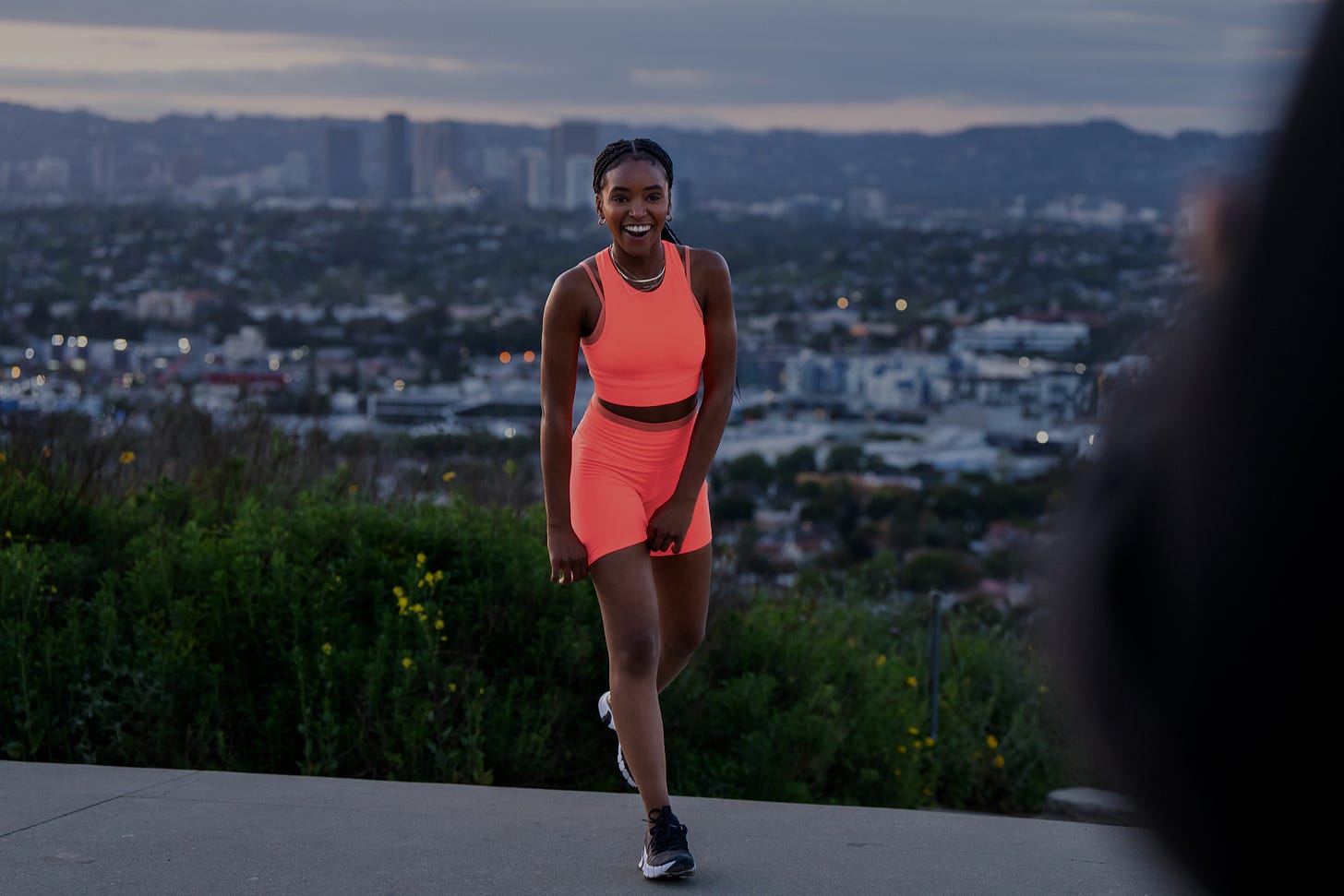Mara Brock Akil on 'Forever', Netflix, Judy Blume & DEI Rollback: 'You'll Lose'
The prolific creator and showrunner tells me about her adaptation of the 1975 classic that centers on Black teens: 'Who is the most vulnerable now?'
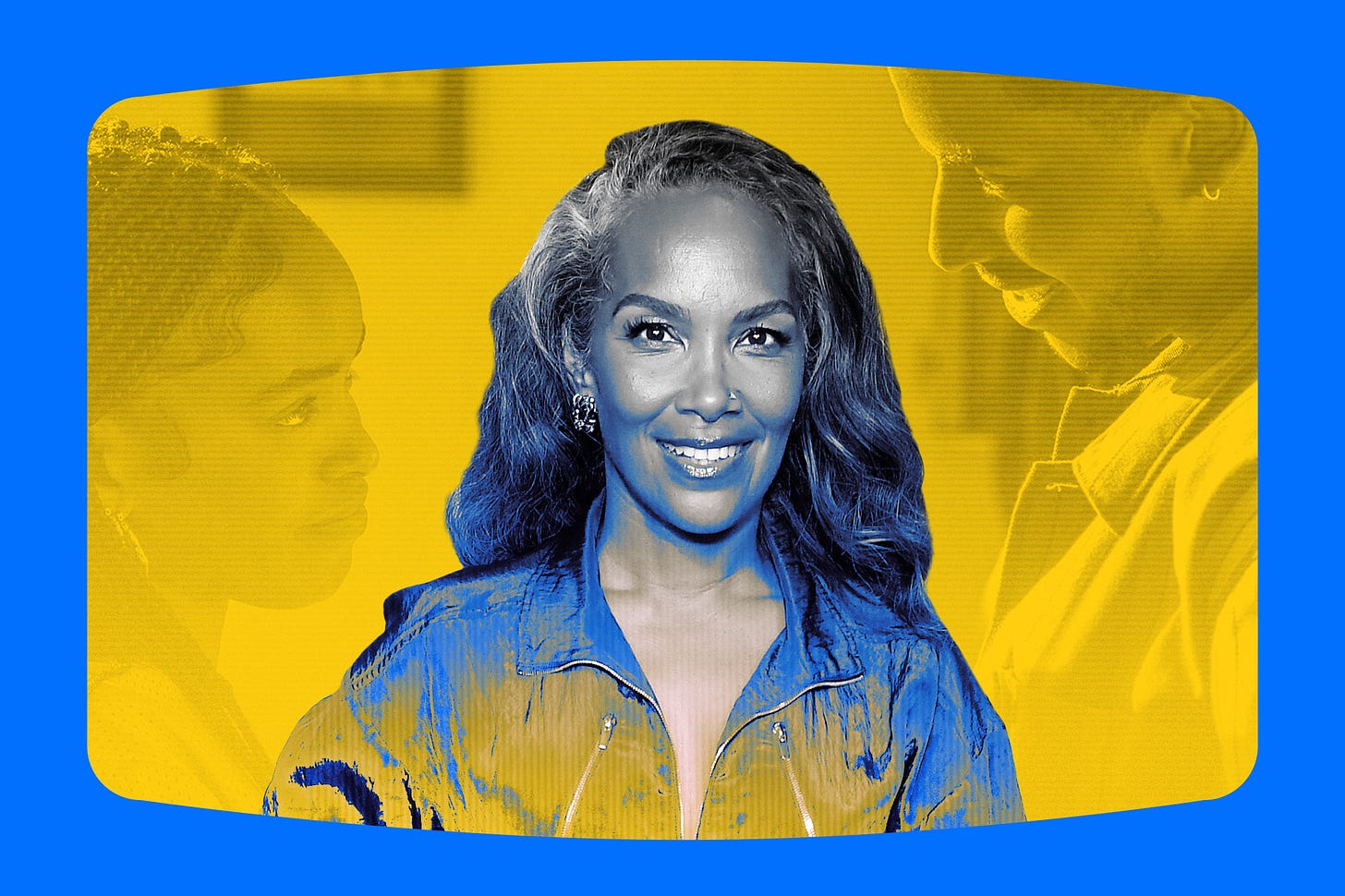
Lesley Goldberg reports from L.A. She surveyed writers about whether the WGA strike was worth it and wrote about what it takes to get staffed in a writers room today. Reach her at lesley.goldberg@theankler.com
Mara Brock Akil has a message for media companies bending the knee to President Trump’s efforts to kill DEI programs: Roll back to a time without representation and you’ll “lose.”
They’re strong words from a 54-year-old L.A. native who has had an active hand in the evolution of Black stories on television. Before creating seminal hits Girlfriends, The Game and Being Mary Jane, Akil started as a PA on Fox’s The Sinbad Show in 1993 and rose through the ranks as a writer on long-running hits Moesha (where she met her husband of 17 years, Salim Akil) and The Jamie Foxx Show.
Now, after a brief return to The Game via a Paramount+ revival, Akil is back, this time with a reimagined take on Judy Blume’s controversial 1975 coming-of-age novel Forever…, the latest screen adaptation from the prolific author whose 1970 favorite Are You There God? It’s Me, Margaret was warmly received by critics but fizzled theatrically in 2023.
Forever… — one of the most frequently banned books according to the American Library Association — revolves around the adolescent bloom of Katherine, a New Jersey teen. “We got to know Katherine’s thoughts, feelings, insecurities and excitement,” as Akil puts it, especially about her first love and her sexuality. The ellipsis at the end of the book’s title, which were dropped for the show, point to the elusiveness of “forever” love (or “forever” anything).
Netflix’s Forever — bowing May 8 — may also be met with controversy as her modern reimagining features equally frank conversations about sex as well as other struggles of Black teens in L.A. in the years between the murders of Trayvon Martin and George Floyd. Akil’s take is what convinced Blume, 87, that Forever could be adapted for a 2025 TV audience. The series stars Lovie Simone (Greenleaf, Manhunt) and newcomer Michael Cooper Jr. as high school students who reconnect and fall in love, with Xosha Roquemore (The Mindy Project), Wood Harris (The Wire, Empire) and Karen Pittman (The Morning Show, And Just Like That…) playing their parents.
The series, Akil says, is a “love story set within a love letter to Los Angeles” (all eight episodes were filmed locally) that she hopes will run for multiple seasons — and, if its showrunner has her way, become a franchise of its own.
In a wide-ranging interview, edited and condensed here, Akil spoke with me about making inclusive shows as DEI programs are under attack, book banning and how she hopes Forever will play a role for an underserved community that — with exceptions that prove the rule like The CW’s All American — rarely gets to see its boys and young men portrayed with depth and nuance on screen. We got into:
When Akil first discovered Forever and its impact on her growing up
Why Blume resisted an adaptation of Forever even after she offered up her oeuvre to Hollywood
How Akil and Blume bonded as artists and parents
How centering the series on Black teens forged an emotional and cultural link to the 1975 book
The aspects of Akil’s adaptation that Blume felt “challenged by”
What it means for creators to “live on algorithms” in the streaming era
Akil’s ambitions for future seasons and even a universe centered on Forever
Her view of Hollywood DEI efforts and recent moves to reduce them
Lesley Goldberg: What was your first experience reading Forever?
Mara Brock Akil: I remember, in middle school, it lit up! We were passing that book around! Pages were falling out, paper clips were needed! I discovered Judy Blume earlier than that, but it was around middle school when I read Forever. I was thankful for the book because we had curiosities. No one in my peer group was like, “We’re ready to have sex.” I don’t think anybody even had a real boyfriend. The point is: We knew we wanted one. We thought in high school, we would have one. And then of course, if you’re going to date — we wanted to do that too — then you’re going to have to kiss. You’re going to have to hold hands and maybe you might have to have sex and well, who’s going to tell us about that in a real way besides “protect yourself” — the emotional aspect to it, what happens next? Those kinds of vibes. The idea of protecting your future even though you wanted to pause and explore love and relationships and to have sex — or not to have sex.
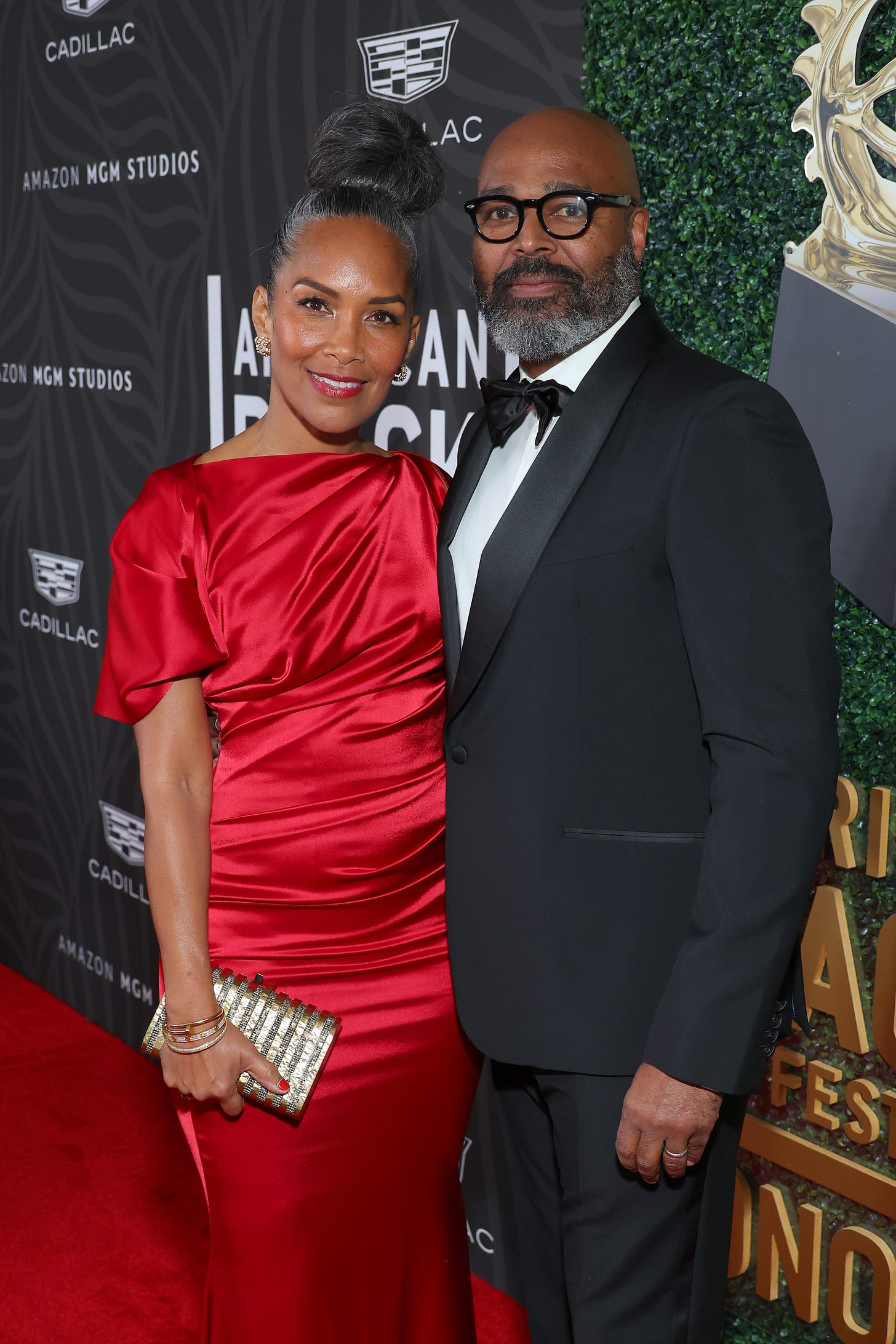
LG: What were your initial conversations like with Judy Blume?
MBA: My eldest son was moving into his adolescence. As a mother, I was trying to help navigate him through that experience but also wanting to protect him. That’s where my heart was at the time in which Judy Blume announced that her body of work can be translated.
Before I could even think about whether I wanted to do it or not, my hand went up. I asked for Are You There, God? It’s Me, Margaret, but that was long gone. I looked at the list and wondered where Forever was. Forever was available, but Judy didn’t initially put it on the list because she didn’t think that it would translate for modern times. She thought that the book was too innocent for where we are today and our approaches to sexuality and what teenagers know or don’t know. I re-read the book with that thought in mind before asking to meet with her.
I found the spirit of Judy as a parent. She wrote that book out of the love of her daughter and wanting her to be happy and healthy in her exploration of love and sexuality, but to also have her future intact. And if you posit that Katherine was, 50 years ago, the most vulnerable in terms of society, who is the most vulnerable now? I posit that it is the Black boy. The birth control pill being introduced into society in the ’70s gave young women a sense of agency. In raising Black boys in America, before they can think about their heart and desires, we parents have to keep them alive.
Especially in the time period that we set [the adaptation] — between Trayvon Martin’s murder and George Floyd’s — Black parents were screaming into a vacuum about how scared we were about our children because no amount of education, no ZIP code seemingly was going to save them. We’d just had a Black president. What does this mean? We were in shock. You get worried about their future in general, let alone the mistakes they can make of the heart.
That conversation opened up Judy to see that I had a take that was less about sexuality and more about the other modern things that are challenging to young people. Changing the race, changing the setting, changing the era allowed for a new narrative that reflected modern times. She was amenable to that and allowing Black boys to have a sense of vulnerability. In the book, we got to know Katherine’s thoughts, feelings, insecurities and excitement. That’s something we’ve never seen on television depicted for Black males, especially young ones. We were off to the races when she understood that there was a pathway of freshness on the story that was anchored into what the book always did: allow young people to have ownership of their feelings and desires and navigate safely enough to have a future.
LG: Bruce Miller of The Handmaid’s Tale told me recently about how his relationship worked with author Margaret Atwood. How involved was Judy here?
MBA: Judy approved the pitch deck, outline and how I was going to approach the series. She gave notes all along the way and she honored my creative expression. She was clear about what she liked, what she responded to and what she was challenged by. She was always, “This is Mara’s vision of a re-imagining of my work.” They’re new characters. She understood that things were going to have to change, but she was always well-informed and always got to see the scripts and cuts. I wanted to know how she felt. She’s a great storyteller and I appreciated her insights.
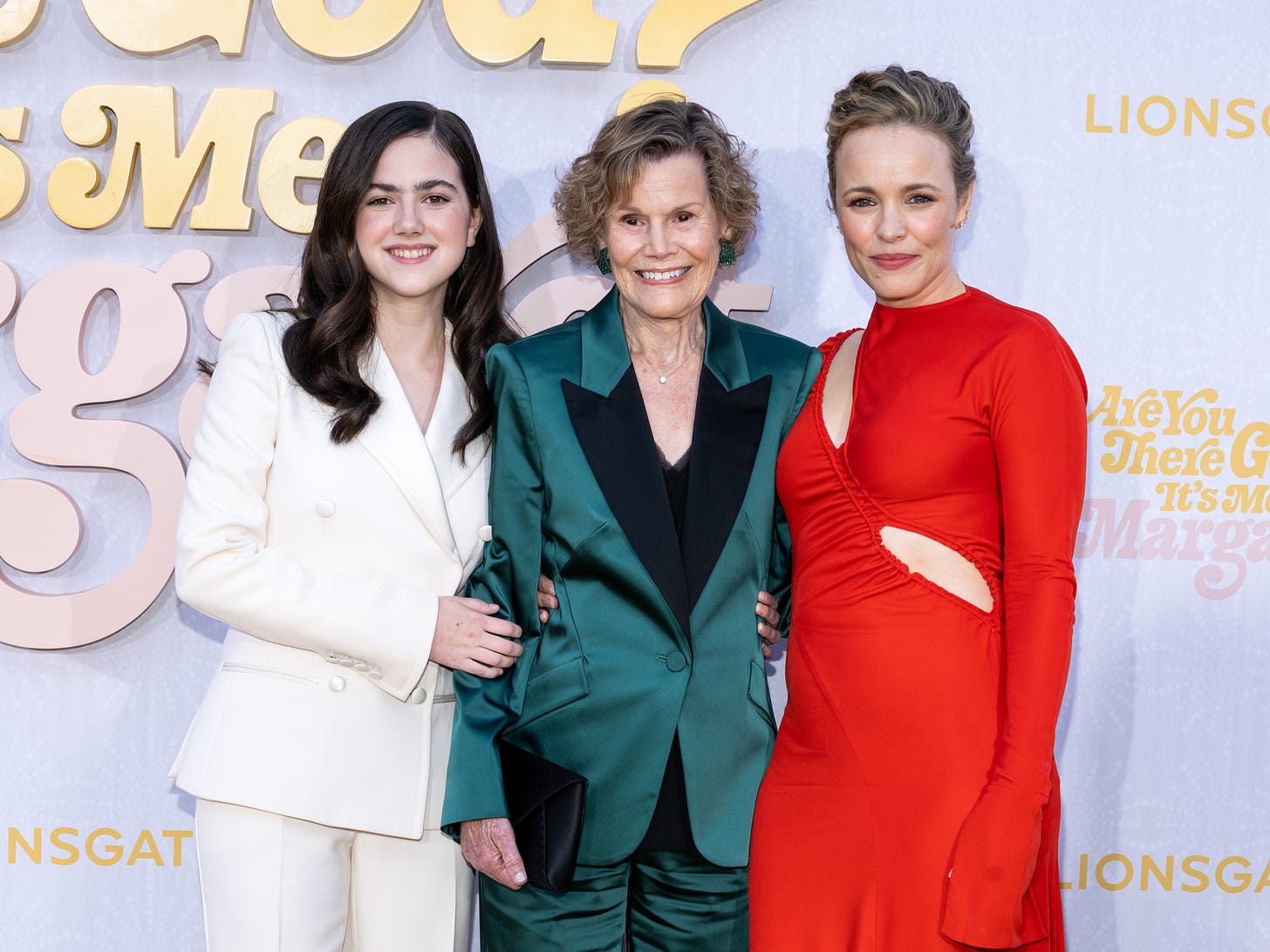
LG: What were some of the things that Judy was challenged by?
MBA: She was challenged by Keisha’s choice in the theater [when, in the pilot, she attempts fellatio with Justin]. Young women have learned a lot about their own sexuality since 50 years ago. With the birth control pill, they can have their own physical needs and desires. In this, if we’re going to be honest, young people — especially young girls — in some cases are assertive in their exploration of what they want to do sexually. They’re sex-positive and there’s consent there. They’re moving in a world where they get to lead the discussion around sex. That’s a new thing. When we were growing up, we were told that you’re supposed to be in love and then you have sex. That’s not always the case right now. We need to be honest about that. That is where sex has progressed.
Judy didn’t understand the choice. I wanted to make space for young girls who are smart and can make complicated decisions. We need to make room for those levels of mistakes, not only in Keisha and Justin, but for our young people in general. That’s not the sum total of you, and your mistake shouldn’t bury you.
LG: There’s a scene in the pilot that encapsulates what your reimagining is: When Keisha’s grandfather asks her if she’s having “boy trouble” and quickly adds “or girl trouble.” Her response is to call him “progressive.” The book was very progressive for its time. How much of that scene was a dialogue to the parents who may be watching Forever alongside their kids and telling them that this show is just as progressive as the book was?
MBA: Caught red-handed! Adults have to make space for children and their rites of passage. It’s our responsibility to keep a safe place in the world and at home. Dawn is a lot, and I mused off of myself to create her. Though our kids know we love them, we have been parenting out of catastrophic fear. Young Black boys, as Dawn says, “It’s like open season on them.” But they’re still here and they deserve to have love and know that just as much as they know fear.
What’s progressive is that 50 years later, we are more comfortable sitting with our children and watching TV that uses storytelling to open a conversation that may have been overlooked or awkward. Art at its best allows for conversation. I hope the show opens up the conversation about the choices of their future. I hope those conversations are more robust than just the idea of sex. We need to help our children navigate their emotions and the fears that they have of the future.
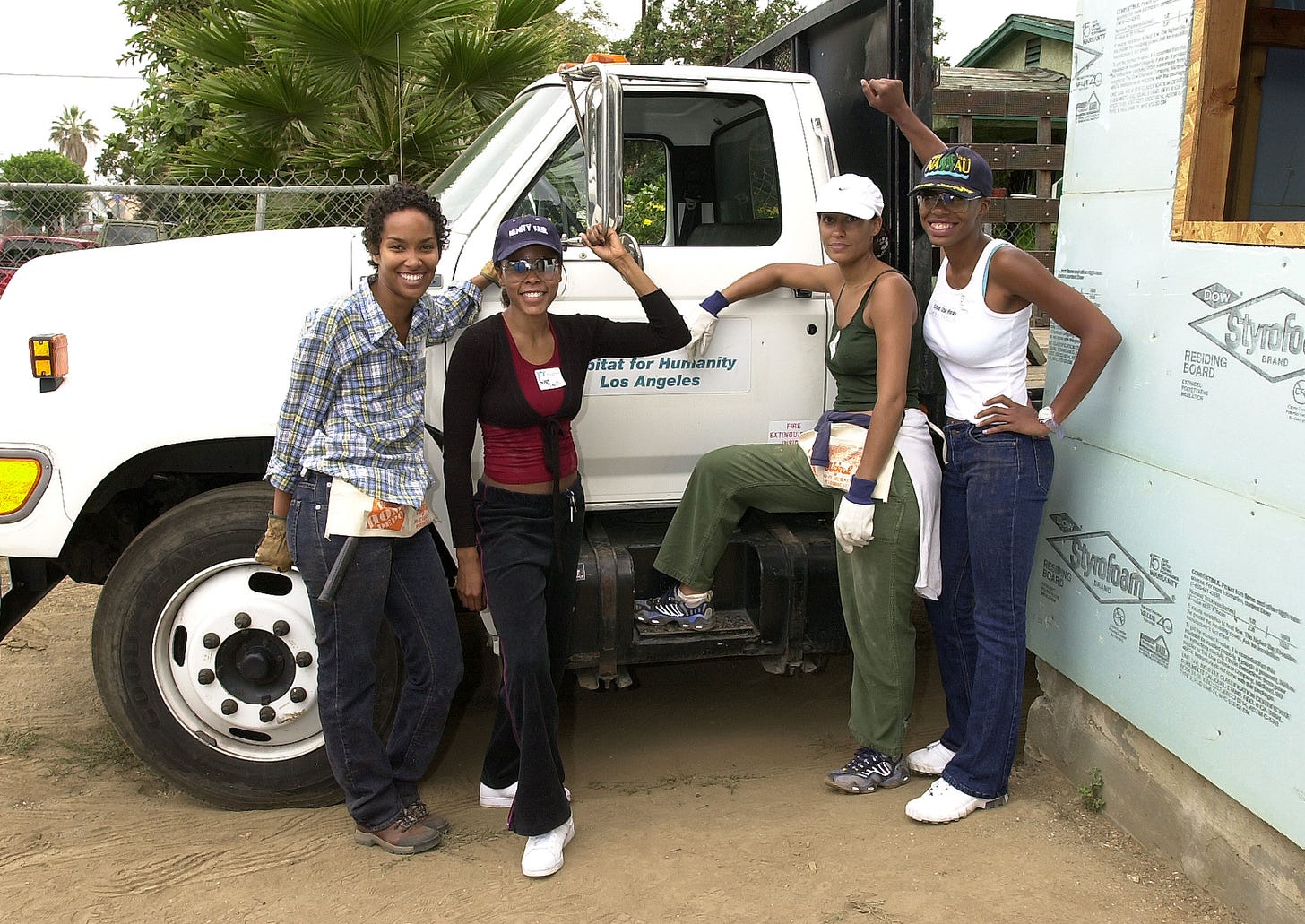
LG: From one L.A. native to another, why did you change the setting from New Jersey to L.A.?
MBA: I love L.A. We’re talking about first loves and first homes, and thought L.A. helped complicate their love story. Not all the neighborhoods in L.A. have been fairly portrayed. A lot of times we think the most beautiful parts of L.A. are above the 10 Freeway. There’s so much more. I come from a neighborhood that is akin to Altadena: Windsor Hills, Baldwin Hills, Ladera Heights. I was born in an area called View Park, and it sustained a lot of Black families over generations, a lot of middle- to working-class families that have sustained the city.
LG: You shot all of season one here. Would you continue to do so should the series be renewed?
MBA: Yes. We got the tax credit. I was very proud of that. This is an epic, intimate love story within a love letter to Los Angeles. There’s so much more to see and so much more for Justin and Keisha. We’re only scratching the surface of the beauty of L.A. And what’s cool about love is that as long as you’re alive, it can have many twists and turns. This show was built for multiple seasons but I made sure that the end of the season, if the show didn’t come back, it felt complete.
LG: You’ve been working steadily in television since the ’90s on shows including Moesha, The Jamie Foxx Show, Girlfriends, The Game and Being Mary Jane — starting well before DEI was even on the lips of an executive. How are you feeling about representation on screen given our current political climate?
MBA: That responsibility is with the owners of these streamers. What do they believe in? Because they’ve always had the choice of which stories get greenlit. The struggle to tell our stories has been consistent over time. [Hulu’s] Paradise is successful. Sterling K. Brown is leading that conversation. The multiculturalism that’s happening in stories gets the story out. Even Matlock — I love Skye Marshall. Representation also starts with my peers as showrunners. How are you imagining the world and who’s going to support these artists?
Netflix did not flinch when I wanted to make Forever with an all-Black cast. We need that kind of support, and to see that love can be seen through the lens of Blackness at a global scale and have it be successful is the answer to fear: actually leaning into what you believe in. If these businesses want to be successful, they’re going to have to stay inclusive.
LG: I remember how it felt when I first saw myself on TV: when Ellen came out and what that meant to the LGBTQ community.
MBA: You give them space to be vulnerable. I hope it’s inspiring. We live on algorithms, right? With the success of this, the algorithm would say, “Wait a minute, the audience wants more of this.” The global audience wants vulnerability and character-driven storytelling that stars young Black people and Black people in general and other races and cultures. People want to be seen, and they now get to make a choice about who they subscribe to in order to do that. That is where our government and corporate leaders are going to have to figure that out. And part of figuring that out is investing in storytellers that can craft on the level that attracts the attention of their needed audience.
LG: What scares you the most about our current political climate with the killing off of DEI programs?
MBA: What scares me most is what scares everybody: gutting all of what has been built and the progress that we have made and leveling it out, and just the hardship on us in daily life, just living in fear daily and the price of worrying about your future, constantly making no room for the imagination of our future generations.
LG: Do you think that Hollywood will change or return to any of its old ways when it comes to diversity and inclusion?
MBA: Rolling backwards? Look at the success of Sinners. It is a very specific, beautiful story, and it is bringing everybody out and creating conversation and an excitement around going back to the movies. The audience wants great storytelling. If they roll back to not being inclusive, they’re going to lose. They won’t be successful. People are voting with their dollars and with their time, and nobody wants to feel unloved in fearful times. People are going to gravitate to light and love. And if you want to roll back and not include me, you know what? They’ll go somewhere else. There’s plenty of things to take our attention, and they’ll find it. And God willing, they’ll find it more in their own communities and where they feel loved. That is the future.
LG: How do you feel about Judy’s book being banned and the banned book movement overall?
MBA: Judy’s book is banned because she dared to tell the truth. [To paraphrase] Jack Nicholson [in A Few Good Men], “A lot of people can’t handle the truth.” But a lot of people can and do. You can ban books, but you can’t ban Netflix. I hope they watch and return to her body of work because she has a lot of nuance about the human condition of young people. And if ever there is a time that we need to be thinking about young people, it is now.
LG: When you signed your Netflix deal in 2020, you said you were excited to “paint murals of women, Black people, and anyone else whose story is missing from this Golden Age of television.” How has your relationship with Netflix changed since Channing Dungey, who oversaw your deal, left? What else are you working on?
MBA: Forever was identified before Channing left. And it was one of the properties that everybody wanted when she was here and when Bela (Bajaria) took over. When all of that changed, they wanted me to stay focused on Forever. I’ve had nothing but support from Netflix about Forever. Netflix is clear about what they want from their creators, and they’re supportive when you’re delivering that. My appetite for more is certainly there. If they want to continue Forever and build universes around it and tell more stories about love and relationships, I’m game.
LG: You want to build this into a larger franchise?
MBA: Yes. I have many ideas of how to spread the love of this show and, as Lenny Kravitz says, “Let Love Rule.”



